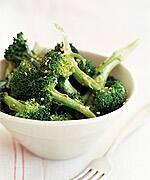Life Extension Magazine®
Melatonin Supplementation May Delay, Improve Menopause Symptoms | |
| Italian researchers report they may have discovered a “cause-effect relationship” between declining levels of melatonin and the onset of menopause.* Produced by the pineal gland deep within the brain, melatonin is known for its role in promoting sleep and regulating circadian (about one day) cycles. The researchers investigated whether nightly melatonin supplementation could modify women’s output of reproductive hormones in women ages 42-62. Women took 3 mg melatonin or placebo each night for six months, and their levels of melatonin and a variety of other hormones were repeatedly monitored. Besides uncovering a possible link between the decline of melatonin and the onset of menopause, researchers also found that melatonin can restore menstrual cycles and fertility in perimenopausal (within a few years of the onset of menopause) and menopausal women. “The six-month treatment with [melatonin] produced a remarkable and highly significant improvement of thyroid function, positive changes of [reproductive hormones] towards more juvenile levels, and abrogation of menopause-related depression,” concluded researchers. —Dale Kiefer | |
| Reference | |
| * Bellipanni G, Di Marzo F, Blasi F, Di Marzo A. Effects of melatonin in perimenopausal and menopausal women: our personal experience. Ann N Y Acad Sci. 2005 Dec;1057:393-402. | |
Single Fast-Food Meal Increases Blood Pressure | |
A single high-fat fast-food meal causes an increase in blood pressure, according to a study published in the Journal of Nutrition.* On two separate occasions, researchers at the University of Calgary fed thirty healthy participants with normal blood pressure either a breakfast from McDonald’s® containing 42 grams of fat or a low-fat meal containing only 1 gram of fat. The meals contained equal amounts of sodium. The participants were then exposed to various stressors in the laboratory. After consuming the high-fat meal, the participants’ systolic and diastolic blood pressures, as well as total peripheral resistance, were significantly higher, compared to measurements taken after the low-fat meal. “Our findings suggest that even a single high-fat meal can result in an exaggerated response to stress,” researcher Dr. Tavis Campbell told Life Extension. While it is well-known that long-term intake of fatty foods increases cardiovascular disease risk, this study demonstrates that just one unhealthy meal can have a negative effect on health. —Marc Ellman, MD | |
| Reference | |
| * Jakulj F, Zernicke K, Bacon SL, et al. A high-fat meal increases cardiovascular reactivity to psychological stress in healthy young adults. J Nutr. 2007 Apr;137(4):935-9. | |
Topical Nutrients Improve Common Skin Complaint | |
| Topical application of the nutrients N-acetyl glucosamine and niacinamide helps reduce skin hyperpigmentation, according to a recent report in the Journal of Cosmetic Dermatology.* Hyperpigmentation (dark spots on the skin) frequently occurs in aging skin as a result of sun exposure. Scientists have speculated that N-acetyl glucosamine (a stabilized form of glucosamine) and niacin-amide (a B vitamin) might promote a more even skin tone by reducing the production of melanin, the skin’s natural pigment. Caucasian women applied a lotion containing 2% N-acetyl glucosamine with 4% niacinamide or niacinamide alone to half the face, and a control lotion to the other half, twice daily for eight weeks. The combination of N-acetyl glucosamine with niacinamide was more effective than niacinamide alone. Gary Goldfaden, MD, member of the American Academy of Dermatology and founder of Cosmesis Skincare told Life Extension, “The combination of these two novel ingredients has proven to be a breakthrough in creating more healthy and youthful appearing skin.” —Dayna Dye | |
| Reference | |
| * Bissett DL, Robinson LR, Raleigh PS, et al. Reduction in the appearance of facial hyperpigmentation by topical N-acetyl glucosamine. J Cosmet Dermatol. 2007 Mar;6(1):20-6. | |
Magnesium Protects Against Inflammation, Endothelial Dysfunction | |
| Healthy women who consume more magnesium are less prone to inflam-mation and endothelial dysfunction than those who do not, according to Harvard University scientists.* Inflammation and endothelial dysfunction often precede atherosclerosis and diabetes, and are involved in metabolic syndrome. Previous research suggests that magnesium intake may decrease the features of metabolic syndrome. Researchers examined 657 participants in the Nurses’ Health Study. Blood samples collected between 1989 and 1990 were analyzed for markers of inflammation and endothelial function. Dietary questionnaires completed by the subjects in 1986 and 1990 were assessed on the dietary intake of magnesium and other nutrients. Higher intake levels of magnesium were associated with lower levels of C-reactive protein (a marker of inflammation) and E-selectin (a marker of endothelial dysfunction). “These observed associations, albeit generally modest, may represent a pathophysiologic mechanism for the [multiple] effects of magnesium intake on the features of the metabolic syndrome and its associated chronic diseases,” the authors concluded. —Dayna Dye | |
| Reference | |
| * Song Y, Li TY, van Dam RM, Manson JE, Hu FB. Magnesium intake and plasma concentrations of markers of systemic inflammation and endothelial dysfunction in women. Am J Clin Nutr. 2007 Apr;85(4):1068-74. | |
Zelnorm® Sales Suspended Due to Increased Risk of Cardiovascular Events | |
Novartis Pharmaceuticals Corp. announced its decision to voluntarily suspend sales of its anti-constipation drug, Zelnorm® (tegaserod maleate), at the request of the Food and Drug Administration (FDA). The drug had been on the market for slightly less than five years. Marketed as a treatment for the relief of chronic constipation and constipation associated with irritable bowel syndrome (IBS), Zelnorm® was found to be associated with an increased risk of “cardiovascular ischemic events.” According to Novartis, a retrospective analysis of clinical trial data involving more than 18,000 patients revealed, “a statistically significant imbalance in the incidence of cardiovascular ischemic events in patients taking Zelnorm® compared to those taking placebo. These events included myocardial infarction, stroke, and unstable angina pectoris.”* Life Extension reminds its readers that it is possible to obtain relief of constipation, often within an hour, by taking two or more teaspoons of buffered vitamin C powder on an empty stomach. Some people with irritable bowel syndrome that results in chronic, dull pain and bowel spasms find relief with an enteric-coated peppermint/caraway oil preparation called Regimint™. —Dale Kiefer | |
| Reference | |
| * Available at: http://www.pharma.us.novartis.com/newsroom/pressReleases/releaseDetail.jsp? PRID=2021&usertrack.filter_applied=true&NovaId=3350119485402711127. Accessed March 31, 2007. | |
Cruciferous Vegetables Fight Prostate Cancer | |
Cruciferous vegetable-derived phytonutrients called isothio-cyanates provide a two-pronged approach in slowing prostate cancer growth, according to a presentation by Dr. Shivendra Singh at the American Association for Cancer Research’s meeting in Los Angeles.* Cruciferous vegetables, which includes broccoli, cauliflower, and cabbage, have demonstrated anticancer effects in numerous studies over the past several decades. Isothiocyanates, compounds that are formed when the vegetables are cut or chewed, may be responsible for some of these benefits. Dr. Singh’s previous work showed that mice implanted with human prostate tumors showed reduced cancer growth after receiving phenethyl-isothiocyanate (PEITC) for 31 days. In the current study, Dr Singh’s team found that PEITC inhibited angiogenesis (the formation of new blood vessels that allows tumors to grow and spread, or metastasize) in cultured prostate cancer cells. “Angiogenesis is a major issue in cancer metastases,” Dr. Singh noted. “Our results provide promising preliminary evidence that constituents of many edible cruciferous vegetables may slow down, or even halt, this process.” —Dayna Dye | |
| Reference | |
| * Available at: http://www.eurekalert.org/pub_releases/2007-04/uops-nic041607.php. Accessed May 16, 2007. | |
Needle Biopsy Benefits Outweigh Risks | |
Many people worry that needle biopsy procedures—such as those used to sample lung or breast tumors—could contribute to cancer spread or metastasis. Yet it appears that this worry is largely groundless, as recently reported in the New York Times.1 According to radiologist Dr. David Yankelevitz of New York-Presbyterian/Weill Cornell hospital in New York, “With any biopsy of any organ, you do loosen some cells, and some do get into the bloodstream, but very rarely do they stick and implant. If you were causing Stage 1 tumors to spread by putting in a needle, you would expect the long-term survival would be lower, but in fact we found no difference at all.”1,2 “The reason you do a biopsy in the first place is that you don’t want to do surgery... for a benign condition. A biopsy can reduce the chance of an operation for someone who doesn’t need one, which is a much greater risk.”1A 1998 study found that among approximately 68,000 needle biopsies, there were eight metastases along the needle track, a rare risk that was deemed “random and unavoidable.”3 —Elizabeth Wagner, ND | |
| Reference | |
| 1. Ray CC. Q & A: Needle Biopsy Risk. New York Times. March 27, 2007. | |
Fish Oil and Exercise Combo Reduces Body Fat, Improves Cardiovascular Health | |
Fish oil supplementation helps reduce body fat and improve cardiovascular health, according to a recent study.* When combined with regular exercise, the healthful benefits of fish oil are amplified. Australian researchers examined the effects of fish oil and exercise, alone or in combination, on body composition and cardiovascular health. Approximately 80 overweight men and women were randomly assigned to one of four groups. Subjects blindly took either six grams of fish oil per day, or six grams placebo (sunflower) oil. One group assigned to each oil treatment also exercised in a prescribed fashion three times weekly. Supplementation and/or exercise continued for three months. Tests performed at six and 12 weeks indicated that fish oil supplementation and exercise alone both improved body composition and several key indicators of cardiovascular health. When supplementation and regular exercise were combined, the beneficial effects were even greater. —Dale Kiefer | |
| Reference | |
| * Hill AM, Buckley JD, Murphy KJ, Howe PR. Combining fish-oil supplements with regular aerobic exercise improves body composition and cardiovascular disease risk factors. Am J Clin Nutr. 2007 May;85(5):1267-74. |










